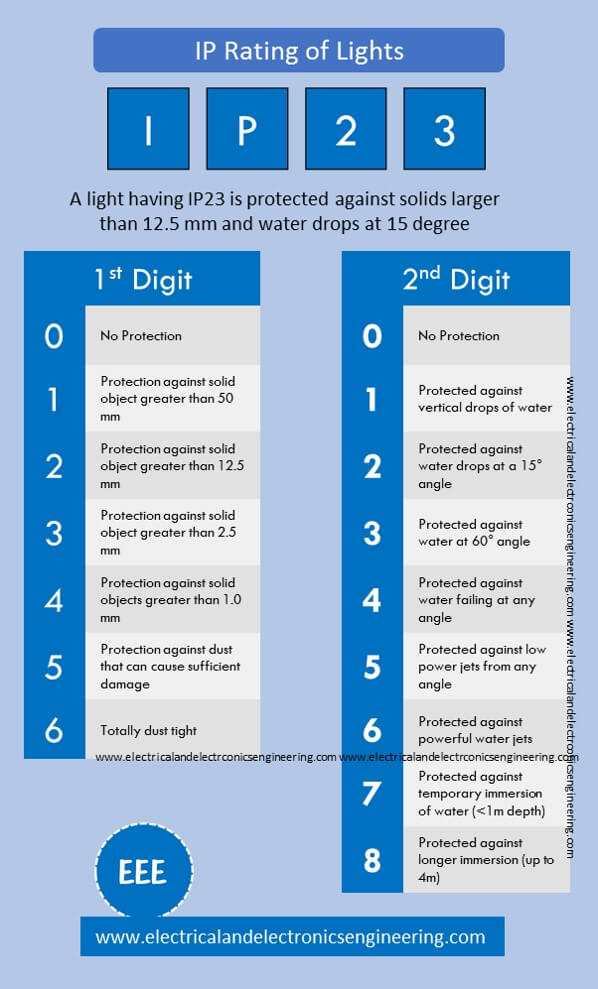While purchasing fixture you might come across IP rating. IP is following by two numbers i.e. IP65, IP23 e.t.c. So what is this and why it is important for Electrical and Electronics Engineers.
The IP rating stands for Ingress Protection and it indicates how much a lighting fixture is protected against different agents. The first digit indicates the protection against a solid object and the second digit indicates the level of protection against pure water.
The first digit can be any number from 0 to 6 & second digit from 0 to 8.
The figure below displays what these digits mean:

Some examples
- IP65: A light that is totally dusted tight and resistant against power jets
- IP66 Light: A light having IP66 will be Totally dust-tight and water-resistant against powerful jets (it is more better in terms of protection against water jets as compared to IP65)
- IP67: Dust tight (same as previous ones) but even better in terms of water resistance since it protects against temporary immersion
Some Questions on IP rating of Lights
Question 1: What should be the IP rating for outdoor lights?
The selection of IP rating here depends on the angle at which water can fall on the light. The minimum IP rating recommended is IP44. However, in case, jet water cleaning is to be used for washing lights a light of minimum IPX5 should be employed.
Question 2: Which IP rated light should be used for bathroom lights?
Bathroom lighting zones should be divided into multiple zones. The most sensitive zone is inside the bath or under the shower area, here it should be IP67.
In a comparatively less sensitive area should have a min of IP45 should be used.
An area within 60cm of any tap should utilize a min of IP44.
Question 3: Which IP rating is recommended for Kitchen?
Depends on conditions. Refer to the above IP chart.
Question 4: Which IP rating should be used for swimming pools?
Depends on the zone of water. Again refer to bathroom light and chart above.
So that was all about the IP rating of lighting fixtures.